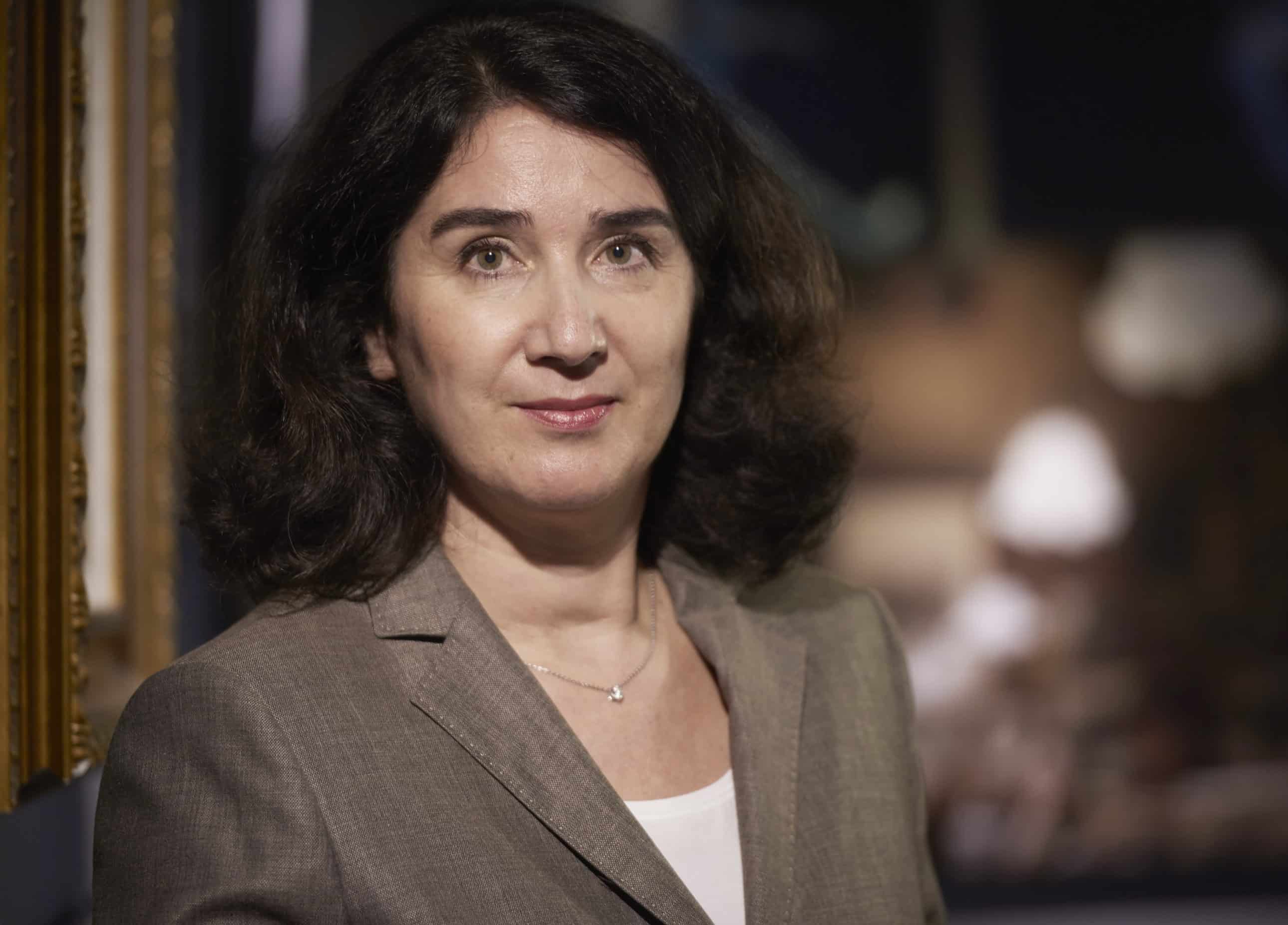In her book « Women in top management », German writer, researcher and executive coach Bettina Al-Sadik shares her insights on the career paths of female business leaders from five different countries : France, Russia, Germany, Japan and China. This intercultural, interview-based approach enables the readers to learn from these role models, their mindset and their success.
How did you start writing about female leadership ?
I come from a corporate background and in my early years, I started observing the dynamics within the teams I worked with, especially how women were perceived, how they felt about their career. Later on, when I became an executive coach, I started supporting women in their career paths. Then, after many years working with different clients and coaching them, I decided that I wanted to do a PhD.
When I was working in China, I realized that something was different. I saw so many women leaders with important titles, important positions that I met everywhere Sometimes they were only a few men around ! I saw it as a real opportunity for me, to analyze and study this sort of “el dorado” for women leaders in order to bring some elements back home in Germany. Therefore, I wrote a book on women leaders in China. Many people liked it and were asking me “what about the other countries” ?
What made you focus on Germany, France, Japan, Russia and China for this second book ?
As I had a good network and I already had my model in place, I started looking at the most important economical countries that I had access to. Besides Russia, I have worked in the four other countries. I chose the women by specific criteria in each country to make sure they were on a comparable level. These countries also represented the full spectrum in terms of participation of women in top management. Russia and China represent the highest level of participation, followed by France, Germany and Japan where there is the lowest representation of women in top management.
You used what you called the FemCareer Model to structure your research. What is this model ?
My book is research-based. I have a scientific approach but I wanted to make it accessible. Therefore, I chose to mix raw transcripts of interviews and then add the analytical part. The FemCareer model is my perspective on the topic of female leadership according to what we know from international literature and according to what I heard in the interviews. It covers the main determinants which are important for female leaders.
I divided it between the external determinants influencing women and their career (family situation, marriage situation, interpersonal support like mentoring, sponsoring and coaching, labor market, company) and the individual factors (education, skills, personality traits and leadership style). In the center of the model we have the career path : how did they do it ? Why did they do it ? Which decision did they take ? How did their career path develop ?
What message did you want to convey with this book ?
In the literature, a lot of the research is very much about men careers still or it compares women to men and we don’t find a lot of cross-cultural approach. So I wanted to bring a new perspective into research but also to women in general. I wanted to show that there were women out there who were successful, no matter the environment, no matter how hard it might be and I said to myself : let’s ask them, let’s go deeper and see how they did it. I wanted to show role models, women who had made it and who could share how. We need role models in top management to normalize these career goals for women.
What can you say about the case of France ?
In every country, I asked women to give a grade on a scale from 0 to 10, 0 meaning no gender equality and 10 equating to total gender equality. On average, the French participants rated their environment with a 6 which is much more than Japan and not so far from Germany and Russia. Women were very proud about the achievements in France in terms of gender representations A lot of them referred to the Coppé-Zimmerman Law about equal representation in companies’ executive boards.
It is true that there has been a lot of improvement in a very short period of time. Since the 80s, things have changed rapidly and are better than in many other countries. It is now an accepted norm that women, even mothers, work full-time. Women don’t feel guilty when they do and I think it is a good first step in the right direction. There is also a range of childcare services available. However, for many women in top management positions it is far from enough and they still have to be very innovative and creative to build their own structures.
How would you describe the French women that you interviewed ?
French women know what they want. They are assertive, strong with enduring conflict, competitive, resilient and emotionally stable. They are also risk-takers. These women know how to use their intellectual strengths and powerful personal presence to convince others in their company. Most of the French women I interviewed also wanted to be successful in every aspects of their lives. They want to be good spouses, mothers and good managers. That is why I have called the chapter on French women “Intellectual warriors against role conflict”.
« According to the stereotype, French women are ambitious managers, fashion-conscious and sexy. Seen from the outside, they represent the cliché of the superwoman who has it all: career, love life, looks and family. » : how does this cliché impact French women in their career ?
Several non-French women that I interviewed for the book mentioned this cliché of the perfect French woman. They had worked in France and felt a pressure about appearance and beauty when they were there. When asking French women, it appeared that they are indeed still strongly judged by outer appearance. It is true all over the world but it seems even more important in France and also in Russia. In Germany, Japan and China beauty norms never came up in the context of management. French women in their interviews said they wanted to be good-looking, they wanted to be “women at work” whereas in other countries it is ok to be more gender-neutral.
Indeed, you talk a lot about this challenge to balance motherhood and working life for women in France, which is a topic that divided the group of interviewees ?
The two generations look at the topic very differently. The generation that paved the way wouldn’t talk about this topic. For the women over 55 who were interviewed, if you want to be a top-manager, you have to do it. That’s it. Younger women, on the contrary, started pointing out the discriminations they were facing as mothers : not getting a promotion, not getting a raise. For the older women, the problem comes from women themselves. Women want to stay in the middle because it easier with children. So yes, there was a clear split in the group concerning the topic of the « motherhood penalty ».
The younger generation mentioned they were hoping for more solidarity from the older women and they felt that sometimes it wasn’t the case and that some women would even put stones in your way. I think it is the same everywhere in the world but it was only some of the French women in my research who mentioned that they experienced a lack of solidarity between women besides the numerous stories of support I received as well.
What are the remaining difficulties for women in France today ?
I quoted several journalists who have worked on the taboo of motherhood. They said that in France, it is still difficult to say that you have a problem with going back full-time after having a baby or talk about the depression you went through when you had to come back to work. For them, women are not allowed to voice their struggle as working mothers still. Also, from an outside point of view, we think that in France, you have excellent childcare services but it is not the case, there are still flawed.
Several women also mentioned the relations between men and women, that they are still a lot of old boys clubs which exclude women and convey stereotypes. This was specifically for the highest level (executive teams, general management), not as much for middle-management positions.
Can you tell us more about French women’s career strategies ?
The main strategies that were mentioned were attending elite schools so that you can be part of a network lifelong which will boost your career, having an international experience to use it as a competitive advantage at the beginning and then jump into a purely French path with global responsibilities. They also said they looked for early leadership responsibilities and they had a preference for well-known companies.
Most of them stated clearly that they wanted to be general managers and they moved to different companies to attain that goal. Others stayed in the same company but created a new start-up within it or a new branch in order to gain more power and influence in the company. They all broke out from their comfort zone to create new roles.
What were common findings for all top women managers in your research ? What characteristics and personality traits do these women share ?
I named it the « ideal woman top manager” which gathers the outcomes of the research. The first thing is that all the women I interviewed defined their will to succeed in their career very early. They know what they want and they want it very strongly. It sounds easy but it’s not. These women are not afraid of conflict (French women especially!) and they are competitive. They clearly say they want to be the best but in a fair way. Other roles, including the one of mother, are linked to their career goal but it wouldn’t change the priority. Their first target will remain their career and they organize their life around this first target.
They also do a lot of training to improve their management skills, they choose good universities, they thrive to get more than one MBA and then they develop management expertise in a strategic way. They work on their leadership style from an early point. These women also actively search for support from others through mentoring, networking and coaching.They are not waiting for a corporate environment to evolve or for the whole society to change, they create their own opportunities. If there is something blocking them, they will find a way to go further. Therefore they are very flexible and adaptable to change. Women in top management want autonomy and power to be able to have a positive influence in the company and care about their employees. They want to be role-models and want solidarity among women.
It was interesting to see how they managed to articulate their role as career women and as mothers. Then in Russia and France there is also the role of beauty and the role of being a spouse. In China there is the role of being a successful daughter. But all of them share one goal : to go higher in their career.
What will the readers draw from the book ?
I think you can learn from the mindset of these women. They share their experiences, how they reacted in certain situations and which decisions they took so readers can learn from that. Moreover, the intercultural aspect of the book enables you to go from one country to another, learn about different environments and how it is still possible for women to be in top management positions. It was important for me that each country get its own depiction, its own role models and then having a more global picture in the last chapter. It is not a book with a list of easy tips, but here it is more about choosing what you are more interested in : career strategy, cultural environment… You get a lot !
What are your plans for the near future ?
I am currently spreading the message of the book globally, especially in the countries that I covered. The English translation only came out 3 week ago ! Moreover, I want to build group trainings for women based on the book and continue to coach qualified women (and men) to fully use their potential, as leaders in a global digitalized world.Also, a next book might come soon. I have some ideas but it still too early!
Interview by Amélie Tresfels












